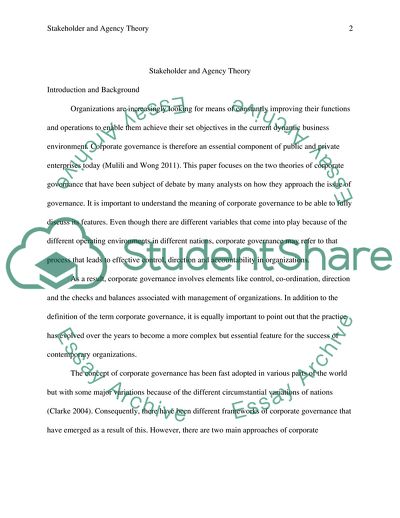Cite this document
(Does Stakeholder Theory Provide a Better Basis for Corporate Governance than Agency Theory Essay Example | Topics and Well Written Essays - 1500 words - 3, n.d.)
Does Stakeholder Theory Provide a Better Basis for Corporate Governance than Agency Theory Essay Example | Topics and Well Written Essays - 1500 words - 3. https://studentshare.org/management/1792031-does-stakeholder-theory-provide-a-better-basis-for-the-development-of-corporate-governance-in-the-21st-century-than-agency-theory
Does Stakeholder Theory Provide a Better Basis for Corporate Governance than Agency Theory Essay Example | Topics and Well Written Essays - 1500 words - 3. https://studentshare.org/management/1792031-does-stakeholder-theory-provide-a-better-basis-for-the-development-of-corporate-governance-in-the-21st-century-than-agency-theory
(Does Stakeholder Theory Provide a Better Basis for Corporate Governance Than Agency Theory Essay Example | Topics and Well Written Essays - 1500 Words - 3)
Does Stakeholder Theory Provide a Better Basis for Corporate Governance Than Agency Theory Essay Example | Topics and Well Written Essays - 1500 Words - 3. https://studentshare.org/management/1792031-does-stakeholder-theory-provide-a-better-basis-for-the-development-of-corporate-governance-in-the-21st-century-than-agency-theory.
Does Stakeholder Theory Provide a Better Basis for Corporate Governance Than Agency Theory Essay Example | Topics and Well Written Essays - 1500 Words - 3. https://studentshare.org/management/1792031-does-stakeholder-theory-provide-a-better-basis-for-the-development-of-corporate-governance-in-the-21st-century-than-agency-theory.
“Does Stakeholder Theory Provide a Better Basis for Corporate Governance Than Agency Theory Essay Example | Topics and Well Written Essays - 1500 Words - 3”. https://studentshare.org/management/1792031-does-stakeholder-theory-provide-a-better-basis-for-the-development-of-corporate-governance-in-the-21st-century-than-agency-theory.


